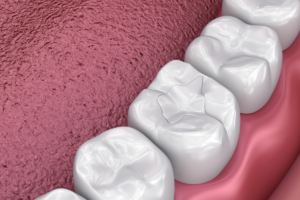A failed root canal is one of many reasons holistic dentists recommend alternative treatments for their patients. Despite the significant number of root canals performed, they are still risky, and should they fail, you will have to go through many more procedures to restore your gum. This article will explain the symptoms of a failed root canal, how to treat it, and why you should choose an alternative. If you have a root canal or are considering getting one, don’t miss out on this one.
What Does a Failed Root Canal Mean?
A failed root canal happens when the tooth socket is not appropriately cleaned, or gets infected again. However, you might not notice the infection for months or even years. These infected teeth can have zero symptoms or many symptoms that differ from those before the root canal. If you don’t address a failed root canal, the infection might spread to the neighboring teeth. Therefore, you need to have regular checkups with your dentist and keep in mind the symptoms of a failed root canal so you can prevent further damage to your oral health. Dr. Horiyat explains the risks of root canals in this video.
What Are the Symptoms of a Failed Root Canal?
Generally speaking, these are some of the signs of a failed root canal:
Pain or Tooth Sensitivity
Pain is common after a root canal for a couple of days, but if it continues for a long while, impacting your normal daily activities, you should be concerned about it. It can be a sharp or dull pain, even only when you chew on that side of your jaw in the days after your treatment or weeks later.
On the other hand, tooth sensitivity is absolutely not expected after a root canal. If your teeth are sensitive to temperature or different stimulations, you should visit your dentist for a failed root canal because you shouldn’t feel anything in that tooth after the treatment. Some nerves are still in your tooth if it’s sensitive or tender.
Swelling or Discharge
Generally, you shouldn’t experience gum or jaw inflammation after a root canal. If you have a swelling gum, it’s a symptom of infection on that side. Cracked teeth can still get infected after a root canal since bacteria enter the gum through the crack. You should immediately contact your dentist for swelling after the treatment.
Cavities or cracks on your teeth might cause a discharge, but the main reason for a discharge is dental abscesses. These active abscesses create fluid-filled pimples on your gum that might get empty on their own. These discharges taste salty or metallic and might indicate a failed root canal. Remember that these pimples come and go, but to treat the leading cause, you need to see your dentist.
What Is the Main Reason for a Failed Root Canal?
The main reason for a failed root canal is the failure to effectively clean the canal. Even if your dentist thoroughly removes the nerve tissues, reinfection is still possible. This reinfection might be caused by the dentist’s lack of experience or using the wrong equipment. But it is not necessarily your dentist’s fault. The nature of this treatment allows for reinfection. In holistic dentistry, the dentist extracts the tooth to remove any dead tissue instead of performing a root canal. In this video, Dr. Maryam Horiyat will further explain how the tooth socket is cleaned after a tooth extraction. Compare this procedure with a root canal cleaning.
How Can a Failed Root Canal Be Fixed?
A failed root canal can be fixed either by retreatment of the root canal or extraction. Holistic dentists generally recommend extraction of the dead tooth as it affects your oral and overall health. After the extraction, you can choose a zirconia implant to avoid gum recession. Zirconia implants are a bio-compatible option for replacing your tooth. In the video below, Dr. Horiyat will explain the destructive effects of an infected root canal on your oral and overall health.
What Is an Alternative to a Root Canal?
Experts usually suggest you prevent cavities by brushing and flossing every day. You should also have regular checkups with a holistic dentist to ensure that there is no infection in your gum, jawbone, or teeth root in the first place. However, if you need a root canal or you already have a tooth with a root canal, we recommend you consider a holistic tooth extraction. It is safer and more natural for your body. You will also need fewer dental appointments compared to undergoing a root canal and risk failure and other oral problems. In this video, Dr. Horiyat talks about your alternative for root canals.
Do You Need to Know More About Failed Root Canals?
This article covered the reasons and symptoms of a failed root canal and why choosing an alternative for this treatment is better. If you are still concerned about root canals and need to know more about them, you should talk to a holistic dentist. Dr. Maryam Horiyat is a certified and accredited member of the International and American Holistic, Biological, Cosmetic, Sedation, Reconstructive, and Implant Associations and can answer all of your questions. Contact us today for a consultation and start your journey right away.



















